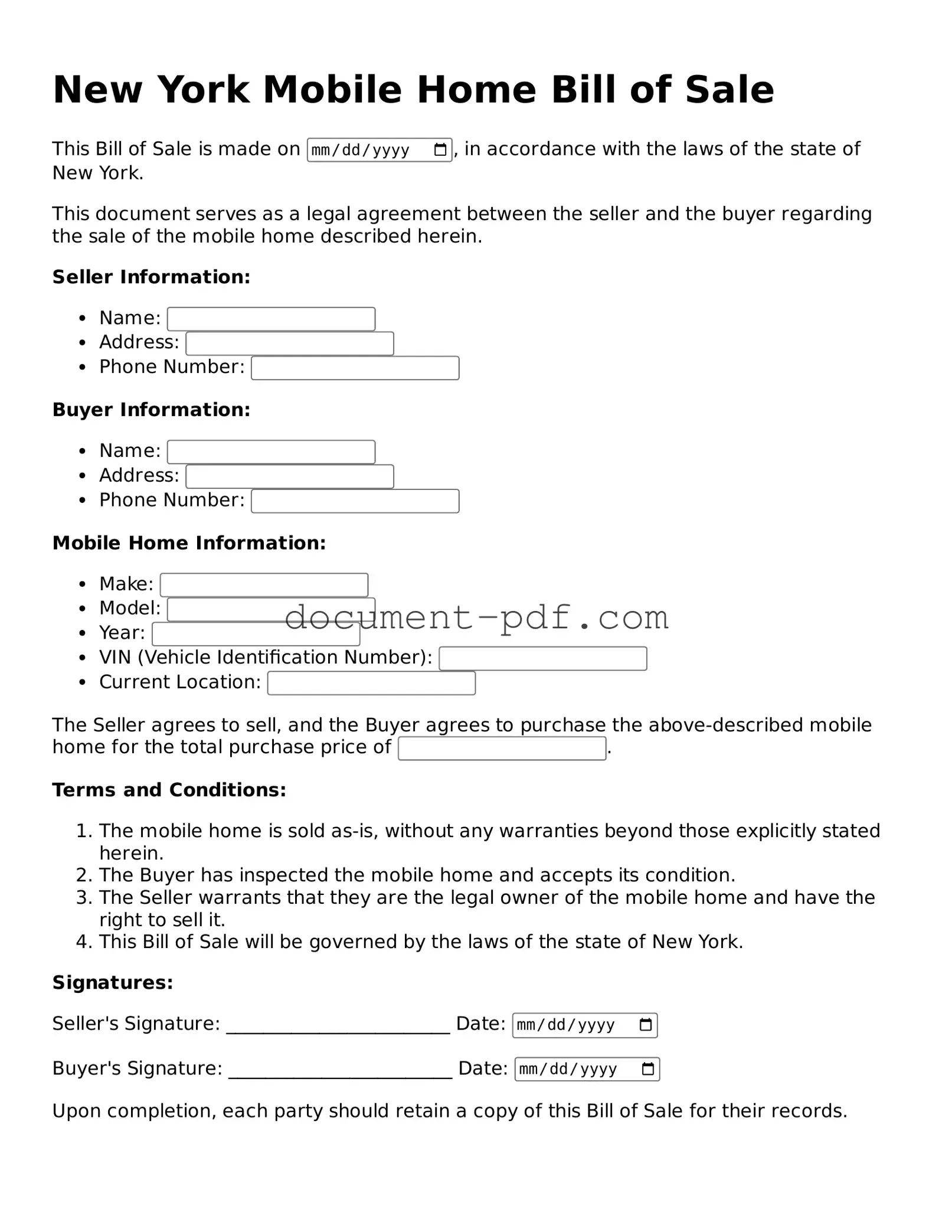Attorney-Verified New York Mobile Home Bill of Sale Template
The New York Mobile Home Bill of Sale form is a crucial document that facilitates the transfer of ownership for mobile homes within the state. This form not only serves as proof of sale but also provides essential details about the transaction, ensuring both parties are protected. For a seamless transfer process, consider filling out the form by clicking the button below.
Access Mobile Home Bill of Sale Editor Here

Attorney-Verified New York Mobile Home Bill of Sale Template
Access Mobile Home Bill of Sale Editor Here
Finish the form without slowing down
Edit your Mobile Home Bill of Sale online and download the finished file.
Access Mobile Home Bill of Sale Editor Here
or
Click for PDF Form
